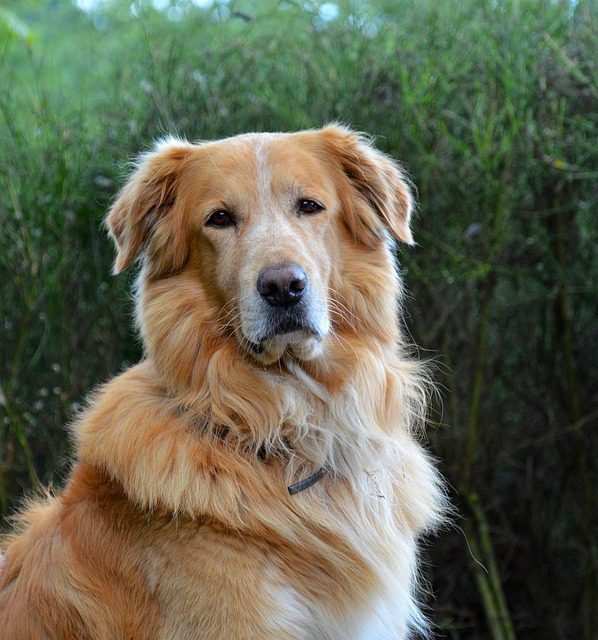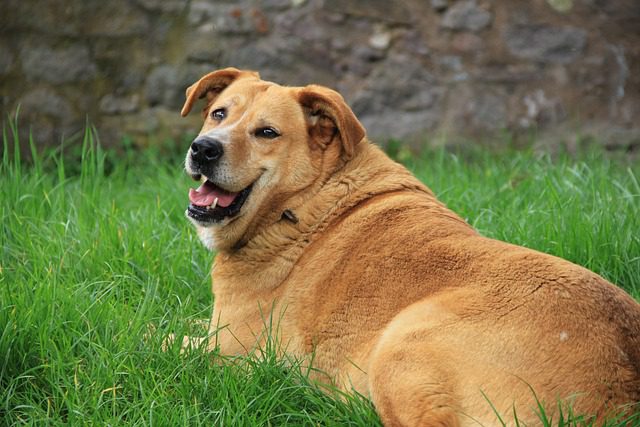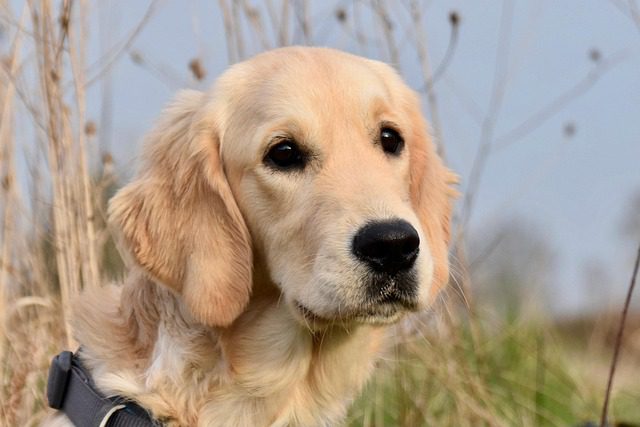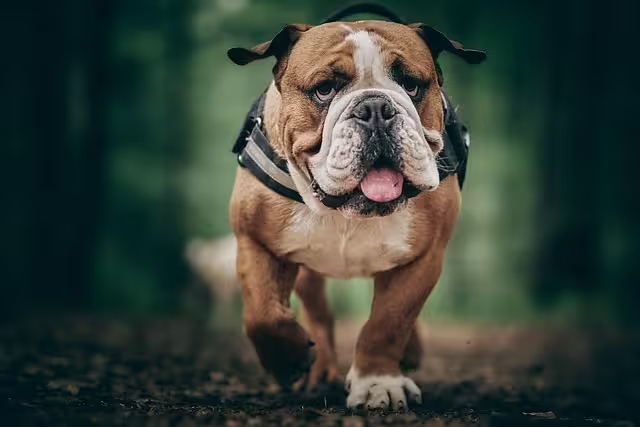When it comes to welcoming a golden retriever puppies into your home, one of the most critical aspects of their early development is proper nutrition· Golden Retrievers, known for their playful and friendly nature, require a well-balanced diet that supports their growth, energy levels, and overall health· Understanding their specific nutritional needs is essential for any responsible pet owner· This article delves deep into the nutritional requirements for Golden Retriever puppies, emphasizing the importance of high-quality puppy food in their diet·
Understanding the Nutritional Needs of Golden Retriever Puppies
Golden Retriever puppies experience rapid growth and development during their first year of life· During this crucial period, they need a diet rich in proteins, fats, carbohydrates, vitamins, and minerals· Each of these components plays a vital role in their physical and cognitive development, ensuring they grow into strong and healthy adults·
The Role of Proteins
Proteins are the building blocks of a puppy’s body, supporting muscle growth and repair· For Golden Retrievers, who are known for their active lifestyle, a diet that includes high-quality animal proteins is essential· Look for puppy foods that list real meat, such as chicken, beef, or fish, as the primary ingredient· These proteins not only support muscle development but also provide essential amino acids necessary for their overall health·
Moreover, the protein content in puppy food should ideally range between 22% to 32%· This range ensures that your puppy receives adequate nourishment to support their energetic play and growth· Inadequate protein intake can lead to stunted growth and developmental issues, highlighting the importance of selecting a high-quality puppy food that meets these requirements·
The Importance of Fats
While proteins are crucial, fats are equally important in a puppy’s diet· They are a significant source of energy and play a vital role in the absorption of fat-soluble vitamins (A, D, E, and K)· For Golden Retriever puppies, healthy fats, particularly omega-3 and omega-6 fatty acids, are essential for promoting a healthy coat and skin, as well as supporting cognitive development·
When selecting puppy food, look for options that include sources of healthy fats, such as fish oil or chicken fat· The fat content in their diet should be around 8% to 20%, depending on the specific needs of your puppy· Proper fat intake not only fuels their active lifestyle but also contributes to their overall well-being·
Carbohydrates and Fiber
Although carbohydrates are not an essential nutrient for puppies, they serve as an important energy source· High-quality puppy foods often incorporate whole grains or vegetables, which provide the necessary carbohydrates along with fiber· Fiber aids in digestion and helps maintain a healthy gut, which is particularly important for golden retriever puppies, known for their sensitive stomachs·
Opt for puppy food that includes complex carbohydrates, like brown rice or sweet potatoes, as these provide sustained energy without causing spikes in blood sugar levels· The inclusion of fiber-rich ingredients will also ensure your puppy’s digestive health and can prevent issues such as obesity, which is a common concern for Golden Retrievers·
Vitamins and Minerals: The Building Blocks of Health
In addition to proteins, fats, and carbohydrates, vitamins and minerals are fundamental to the growth and development of Golden Retriever puppies· These nutrients support various bodily functions, including bone development, immune function, and overall health·
Calcium and phosphorus are particularly important for Golden Retriever puppies, as they contribute to healthy bone development· A deficiency in these minerals can lead to skeletal issues, especially in large breeds· The ideal calcium-to-phosphorus ratio for growing puppies is generally 1:1 to 1·5:1· Therefore, it is crucial to choose a puppy food that meets these mineral requirements·
Furthermore, vitamins such as A, D, and E play essential roles in maintaining health· Vitamin A supports vision and immune function, while Vitamin D aids in calcium absorption for strong bones· Vitamin E acts as an antioxidant, protecting cells from damage· Ensuring that the puppy food you choose is fortified with a balanced array of vitamins and minerals will provide your Golden Retriever with the foundation needed for a healthy life·
Choosing High-Quality Puppy Food
When selecting puppy food for your Golden Retriever, it is vital to focus on quality over quantity· Look for products that meet the Association of American Feed Control Officials (AAFCO) standards, which indicate the food is nutritionally complete and balanced for growing puppies·
High-quality puppy food will often feature recognizable ingredients, avoiding fillers or artificial additives that can be detrimental to your puppy’s health· Ingredients like whole meats, vegetables, and healthy fats should be prioritized· Additionally, consider the size of the kibble; Golden Retriever puppies may benefit from larger kibble sizes that promote chewing and help prevent rapid eating, which can lead to digestive issues·
Transitioning to Adult Food
As your golden retriever puppies matures, their nutritional needs will change· Typically, puppies can transition to adult food around 12 months of age· However, this transition should be gradual, allowing your puppy’s digestive system to adjust· Adult dog food often has different nutrient ratios suited to maintaining health rather than supporting growth, so it is crucial to consult with your veterinarian to determine the best time for this transition·
Feeding Schedule and Portion Control to Avoid Obesity in Golden Retriever Puppies
Welcoming a Golden Retriever puppy into your home is a joyful occasion filled with endless affection and playful antics· However, alongside the excitement comes the responsibility of ensuring their health and well-being· One of the most crucial aspects of raising a happy and healthy puppy is establishing a proper feeding schedule and practicing portion control· With Golden Retrievers being prone to obesity, understanding how to manage their diet effectively is essential for preventing excessive weight gain and promoting a long, healthy life·
The Importance of a Consistent Feeding Schedule
Establishing a consistent feeding schedule is vital for Golden Retriever puppies, as it helps regulate their metabolism and creates a routine that they can rely on· Puppies thrive on routine, and having set meal times can significantly contribute to their sense of security· Generally, Golden Retriever puppies should be fed three to four times a day until they reach six months of age, at which point you can transition to two meals per day·
Why Regular Feeding Times Matter
Regular feeding times help prevent overeating and reduce the likelihood of begging behavior· When puppies know they will be fed at the same times each day, they are less likely to become anxious or overly excited about food· This routine also aids in digestion, as their bodies learn to expect food at specific intervals· Additionally, a regular feeding schedule can make potty training easier since puppies are more likely to relieve themselves after eating·
Creating a structured feeding routine is not just about timing but also about the environment in which you feed your puppy· Choosing a quiet, designated area for meals can help your Golden Retriever focus on eating rather than being distracted by external stimuli· This practice will encourage healthy eating habits and prevent them from gulping their food too quickly, which can lead to gastrointestinal issues·
Understanding Portion Control
Portion control is a critical aspect of managing your Golden Retriever puppy’s diet· Overfeeding is one of the leading contributors to obesity, and Golden Retrievers are particularly susceptible to weight gain due to their love of food and tendency to beg· To ensure your puppy maintains a healthy weight, it is essential to understand how much to feed them based on their age, weight, and activity level·
Determining the Right Portions
Most high-quality puppy food brands provide feeding guidelines on their packaging, indicating the recommended portion sizes based on your puppy’s weight· These guidelines serve as a valuable starting point, but it’s important to remember that every puppy is unique· Factors such as activity level, metabolism, and overall health can influence how much food your puppy requires·
For Golden Retriever puppies, a general rule of thumb is to feed them around 1 to 2 cups of high-quality puppy food per day, divided into multiple meals· Monitoring their body condition score can help you assess whether you are providing the right amount of food· A healthy Golden Retriever should have a visible waist when viewed from above and should not have excessive fat covering their ribs· Regular weight checks and consultations with your veterinarian can also help you determine if your puppy is on track·
The Role of Treats in Portion Control
While treats can be a great tool for training and rewarding good behavior, they can quickly add up and contribute to excessive calorie intake· It’s essential to incorporate treats into your puppy’s daily caloric allowance rather than offering them freely· A good rule of thumb is to limit treats to no more than 10% of their total daily caloric intake·
When choosing treats for your Golden Retriever puppy, opt for healthy options that are low in calories· You can also consider using pieces of their kibble as treats during training sessions, which helps reinforce good behavior without adding extra calories· Remember, the goal is to maintain a balance between rewarding your puppy and ensuring they receive the proper nutrition they need for healthy growth·
Addressing Common Feeding Challenges
While establishing a feeding schedule and practicing portion control can significantly benefit your Golden Retriever puppy, there may be challenges along the way· Puppies can be picky eaters or may develop a habit of begging for food outside of their scheduled meal times· Addressing these challenges early on is crucial in fostering a positive relationship with food·
Dealing with Picky Eaters
If your Golden Retriever puppy seems disinterested in their food, it may be tempting to offer different options to entice them to eat· However, this approach can lead to developing picky eating habits· Instead, stick to a consistent brand and type of puppy food for at least a few weeks to allow your puppy to adjust to the taste and texture· If your puppy continues to refuse their food, consult your veterinarian to rule out any underlying health concerns·
Managing Begging Behavior
Golden Retrievers are known for their affectionate and persistent nature, which can lead to begging behaviors during mealtime· To combat this, avoid feeding your puppy from the table or giving in to their pleading eyes· Instead, ensure they receive their meals during designated feeding times and provide a comfortable space for them to eat without distractions· Consistency is key; over time, your puppy will learn that mealtime is a scheduled event and not an opportunity for constant snacking·
Foods to Avoid for Golden Retriever Puppies
As a proud owner of a Golden Retriever puppy, you are likely aware of the immense joy and companionship these furry friends bring into our lives· However, along with the love and excitement of having a new puppy comes the responsibility of ensuring their health and well-being· One critical aspect of this responsibility involves understanding what foods are safe and beneficial for your puppy and, equally important, what foods to avoid· Certain common foods can be toxic to Golden Retriever puppies and can lead to severe health issues if ingested· In this article, we will explore some of the most dangerous foods, including chocolate, grapes, onions, and others, to ensure that your puppy remains healthy and safe·
The Dangers of Chocolate
Chocolate is one of the most well-known toxic foods for dogs, including Golden Retriever puppies· The culprit behind its toxicity is theobromine, a compound found in cocoa beans· While humans can metabolize theobromine without any issues, dogs cannot, leading to serious health concerns· The size of your puppy and the type of chocolate consumed significantly influence the severity of the reaction·
Even small amounts of chocolate can cause symptoms such as vomiting, diarrhea, increased heart rate, and restlessness· In more severe cases, chocolate ingestion can lead to seizures and, in extreme situations, death· Dark chocolate and baking chocolate contain higher concentrations of theobromine compared to milk chocolate, making them particularly dangerous· To keep your Golden Retriever puppy safe, ensure that all chocolate products are stored securely out of their reach, and educate your family about the dangers of feeding chocolate to dogs·
Grapes and Raisins: A Hidden Threat
Another surprising food that poses a significant risk to Golden Retriever puppies is grapes and their dried counterpart, raisins· While the exact substance that causes toxicity in dogs remains unknown, it has been well-documented that even small amounts of grapes or raisins can lead to kidney failure in dogs· Symptoms of grape or raisin toxicity can include vomiting, lethargy, loss of appetite, and abdominal pain·
The severity of the reaction can vary depending on the individual dog and the amount consumed, but it is crucial to treat any ingestion as a potential emergency· If your puppy has eaten grapes or raisins, seek veterinary assistance immediately, even if they seem fine· Early intervention can be life-saving, and understanding the dangers of these seemingly innocent snacks is vital for any Golden Retriever owner·
Onions and Garlic: More Dangerous than You Think
Onions and garlic, both members of the allium family, can be harmful to Golden Retriever puppies· These foods contain compounds known as thiosulfates, which can damage a dog’s red blood cells, leading to a condition called hemolytic anemia· Symptoms of onion or garlic toxicity may not present immediately; they can take several days to appear and include weakness, vomiting, diarrhea, and pale gums·
While the toxic effects are more pronounced with large quantities, even small amounts can be dangerous, especially if consumed over time· This means that common ingredients in many human foods, such as soups, sauces, and seasonings, can pose a risk· It is best to avoid feeding your Golden Retriever puppy any foods that contain onions or garlic in any form, whether raw, cooked, or powdered· Being vigilant about reading labels and understanding what goes into the food you offer your puppy can help prevent accidental ingestion·
Other Foods to Avoid: Macadamia Nuts and Avocados
In addition to chocolate, grapes, and onions, there are several other foods that Golden Retriever puppies should steer clear of· Macadamia nuts, for instance, are another toxic food that can cause weakness, tremors, and hyperthermia when ingested by dogs· The exact reason why macadamia nuts are harmful to dogs is still unclear, but the effects can be distressing and require veterinary attention·
Avocados also pose a risk due to a substance called persin, which can cause vomiting and diarrhea in dogs· While the flesh of the avocado is less toxic than the pit and skin, it is still best to avoid feeding avocados to your Golden Retriever puppy altogether·
The Importance of a Safe Diet
When it comes to feeding your Golden Retriever puppy, the safest approach is to stick to high-quality puppy food specifically formulated for their nutritional needs· These foods are designed to provide all the essential nutrients, vitamins, and minerals required for healthy growth and development· While it can be tempting to share your food with your puppy, it is crucial to remember that not all human foods are safe for dogs·
Educating yourself about the potential dangers of various foods is an essential part of responsible pet ownership· Always consult with your veterinarian before introducing any new foods into your puppy’s diet· They can provide guidance on safe treats and snacks that will keep your puppy happy and healthy without risking their well-being·
Conclusion
In conclusion, being aware of the foods that are harmful to your Golden Retriever puppy is crucial for maintaining their health and happiness· By avoiding chocolate, grapes, onions, garlic, macadamia nuts, and avocados, you can help prevent serious health issues and ensure a long, vibrant life for your furry friend· As a responsible pet owner, your priority should be to provide a safe and nutritious diet, allowing your puppy to grow into a strong, healthy adult· Remember, the choices you make today regarding your puppy’s nutrition will have lasting effects, so always prioritize their safety and well-being·










